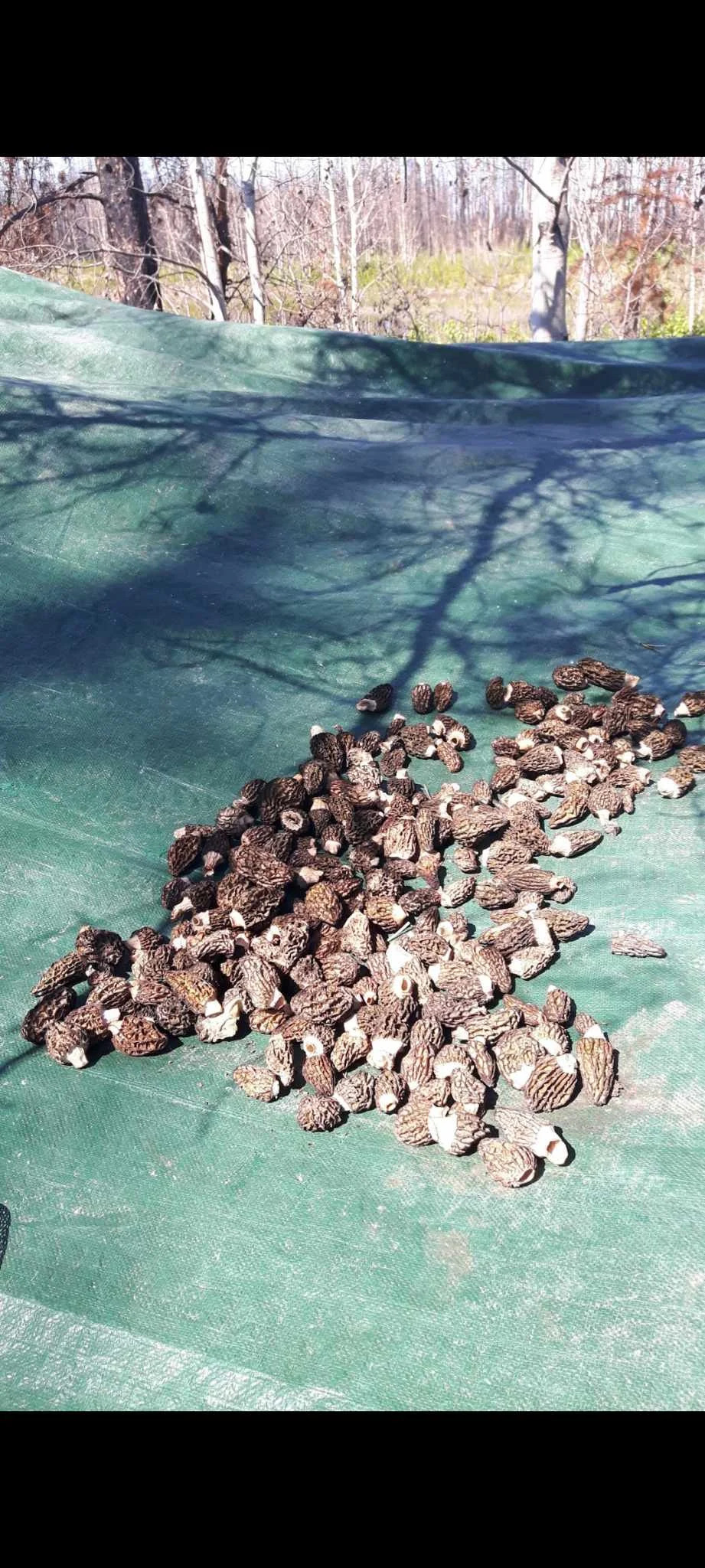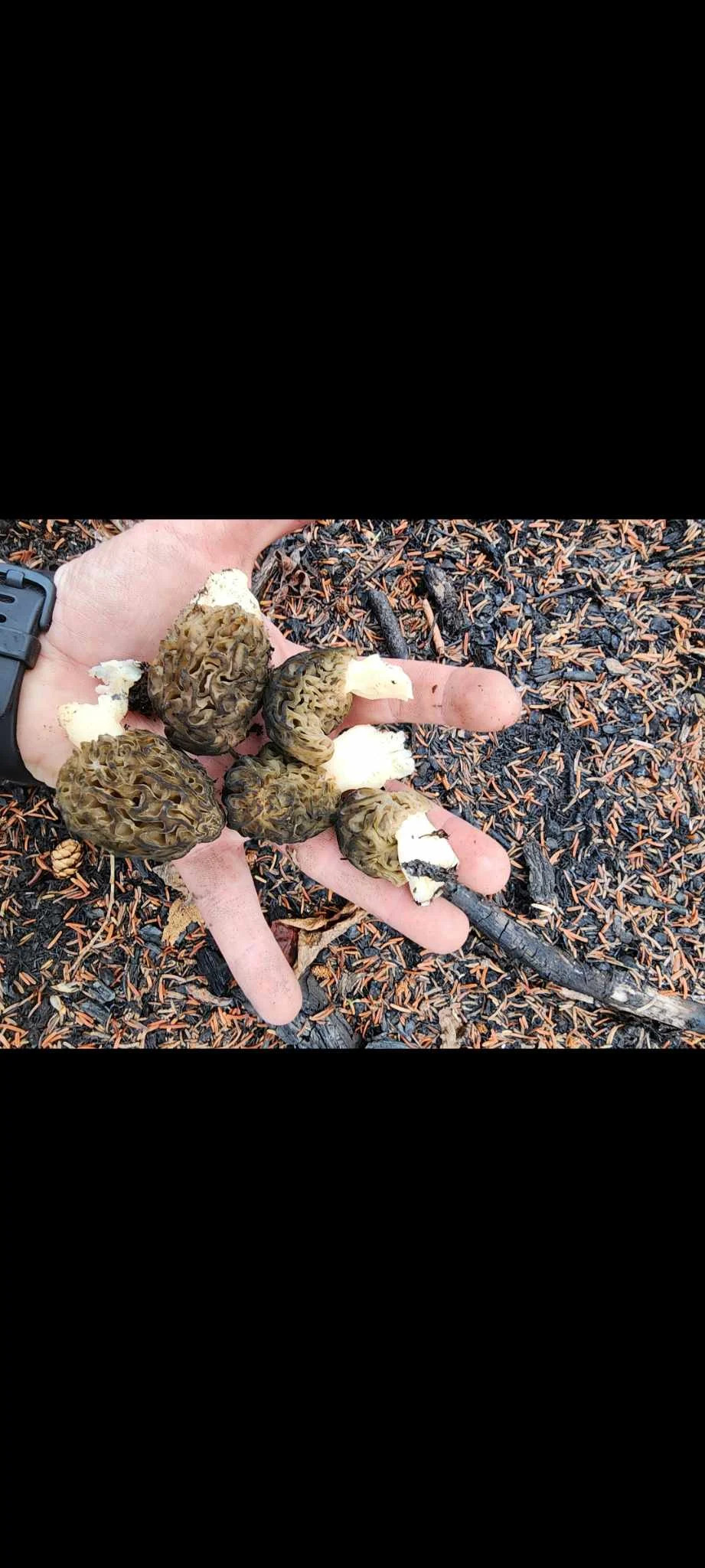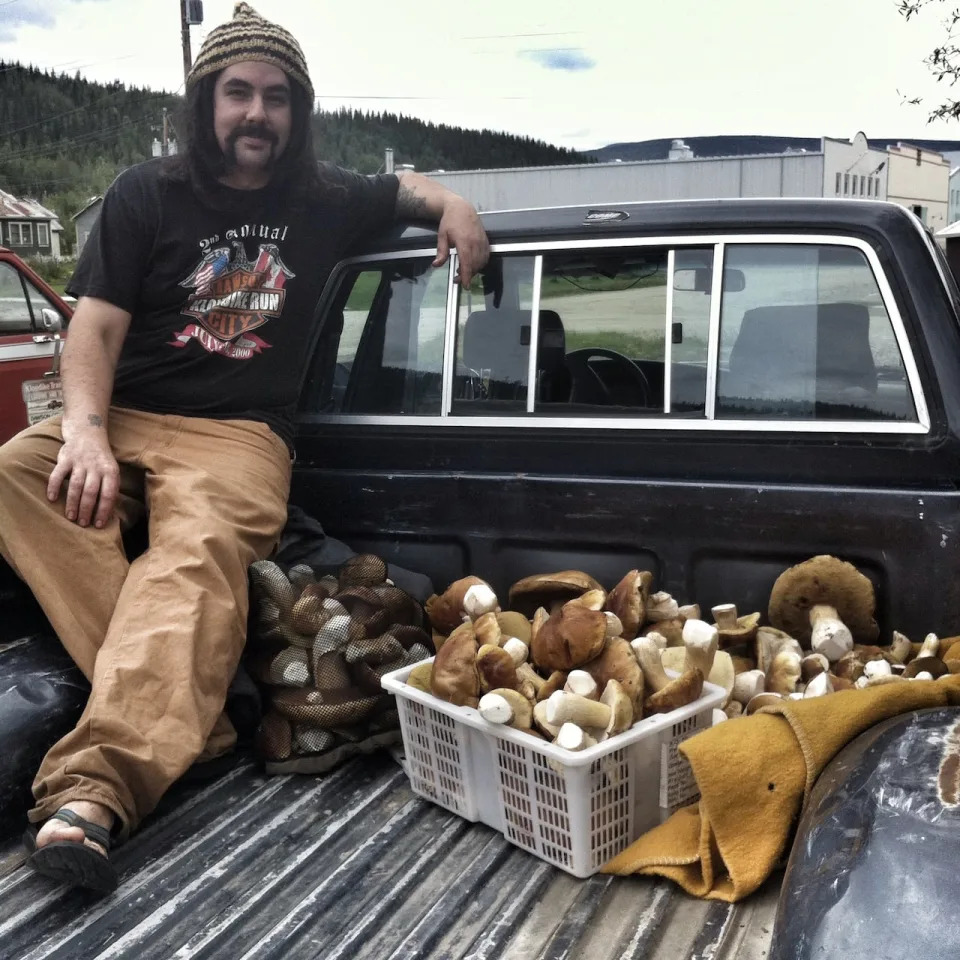CBC
Wed, May 22, 2024

A pile of morel mushrooms. (Michelle Freeland - image credit)
Commercial harvesting of morel mushrooms in the Yukon needs more oversight, according to some experienced pickers.
"It's kind of like the old Wild West,'" said long-time picker Michelle Freeland, who lives in Mayo, Yukon.
For the past 10 years, Freeland has been picking morel mushrooms both commercially and for her own use. She described how commercial buyers, often from outside of the Yukon, will travel to burn sites to recruit local pickers. Morels are often found in areas recently burned by wildfire.
Once at a camp set up by a buyer, Freeland said pickers are often overworked and underpaid.
"They [buyers] know they can take advantage of these people because they're in the middle of the bush," she said.
"If you ever go to the store, to buy morel mushrooms in a grocery store, they're usually $45 a pound. What you see out in the field is $6, $7 a pound."
According to Freeland, morel pickers can make up to $300 to $400 a day, if the pick is good. But she said that money can quickly be spent before getting back to civilization.

Mushroom pickers who pick morel mushrooms for commercial sale require a permit while those who pick for personal use do not. There are no regulations around mushroom buyers according to the Yukon Government's Jason Hudson.
People who pick morel mushrooms in the Yukon for commercial sale require a permit, while those who pick morels for personal use do not. There are no regulations for mushroom buyers, according to the Yukon Government's Jason Hudson. (Michell Freeland)
"I experienced in the Northwest Territories where [commercial buyers] would bring alcohol out to the camps and sell it to the pickers for extreme prices," Freeland said. "I'm going to call it bootlegging because that's what it is."
Freeland also said trash is often left behind when a camp moves on to another site.
She wants there to be stricter regulations around the way buyers operate their camps. She said if mushroom harvesters are required to hold a permit to pick for commercial use, then buyers should also be accountable in some way.
"'They take advantage of the territory, and the people there too."
No regulations for buyers
People who pick morel mushrooms in the Yukon for commercial sale are required to have a permit. This year, the Yukon Government has made applying for those permits much easier.
Since 2011, pickers had to apply for a permit at a local office, but now people can visit the Yukon government's website to expedite the process.
People who want to pick morel mushrooms for personal use don't need a permit.
Jason Hudson, head of enforcement for the compliance, monitoring, inspection branch for the Yukon government, said that in order to enforce rules people need to come forward with complaints first.
"If there's a complaint, officers will follow up and see what the complaint is about," Hudson said.
Hudson said the penalty for not having a permit to pick morel mushrooms for commercial use could range from a simple warning, to a fine under the Forest Resources Act, to a criminal prosecution.
As for buyers, Hudson said there's a grey area when it comes to rules and regulations.
"There's no current regulations that I'm aware of, for buyers," he said. "If they're operating a business in the Yukon they'd have to have a business licence, but I'm not the best person to ask about that."
'People are just seeing dollar bills'
Jeffery Mickleson lived in the Yukon for close to 20 years before moving to Powell River, B.C., to start a restaurant.
He said while he was picking in the Yukon he was doing it for the restaurant he worked at in Dawson City. He said there's a big difference between a local operation and larger commercial harvesting operation.
"A lot of it, people are just seeing dollar bills," he explained. "They don't care about anything else of the process regarding the land, or how anything was handled."
Mickleson said he's been to camps where garbage, fire pits, and makeshift outhouses were left after people moved on.
"For us really small-scale people who pick for what they need, or for a small business, versus seeing people on a large, commercial kill-them-all style level, there's always been a little bit of animosity, and a little bit of..I don't know. I guess some people would look at it as shameful picking on a massively commercial level," he said.
Now a mushroom buyer himself, Mickleson said one concern for him when buying morels is that there's no food safe regulations.

Jeffery Mickleson sitting in the back of his truck with a basket of mushrooms he harvested in Dawson City, Yukon
Jeffery Mickleson sitting in the back of his truck with a basket of mushrooms (not morels) he harvested in Dawson City, Yukon. (Jeffery Mickleson)
"You don't really know the history of what has happened with that food," he said. "You're taking some sort of inherent risk. Who knows if they've sat, got half-moldy before they got sprayed out and dried? You just never know."
Mickleson said when he needs to restock up on fresh mushrooms he'll find where a burn recently happened and put a call out on social media to people he knows in that area. He said he's never needed a permit to buy mushrooms for his restaurant.
Like Freeland, Mickelson said that pickers, and buyers, have the chance to walk away much richer than when they started the season.
"A lot of people have a lot of cash floating around out there," he said.
Mickelson said he's never had a bad experience during his time as a mushroom picker, but he agrees that more regulations should be considered in Yukon to keep everyone safe.
"I think it's something that should be looked at for sure," he said.
He compares the commercial harvesting industry to the Klondike Gold Rush.
"They hear that there's a burn there and they get that... not the 'gold fever,' they get that 'mush rush' — and they start just seeing nothing but cash and 'shrooms. People will do whatever it takes to get that."
No comments:
Post a Comment